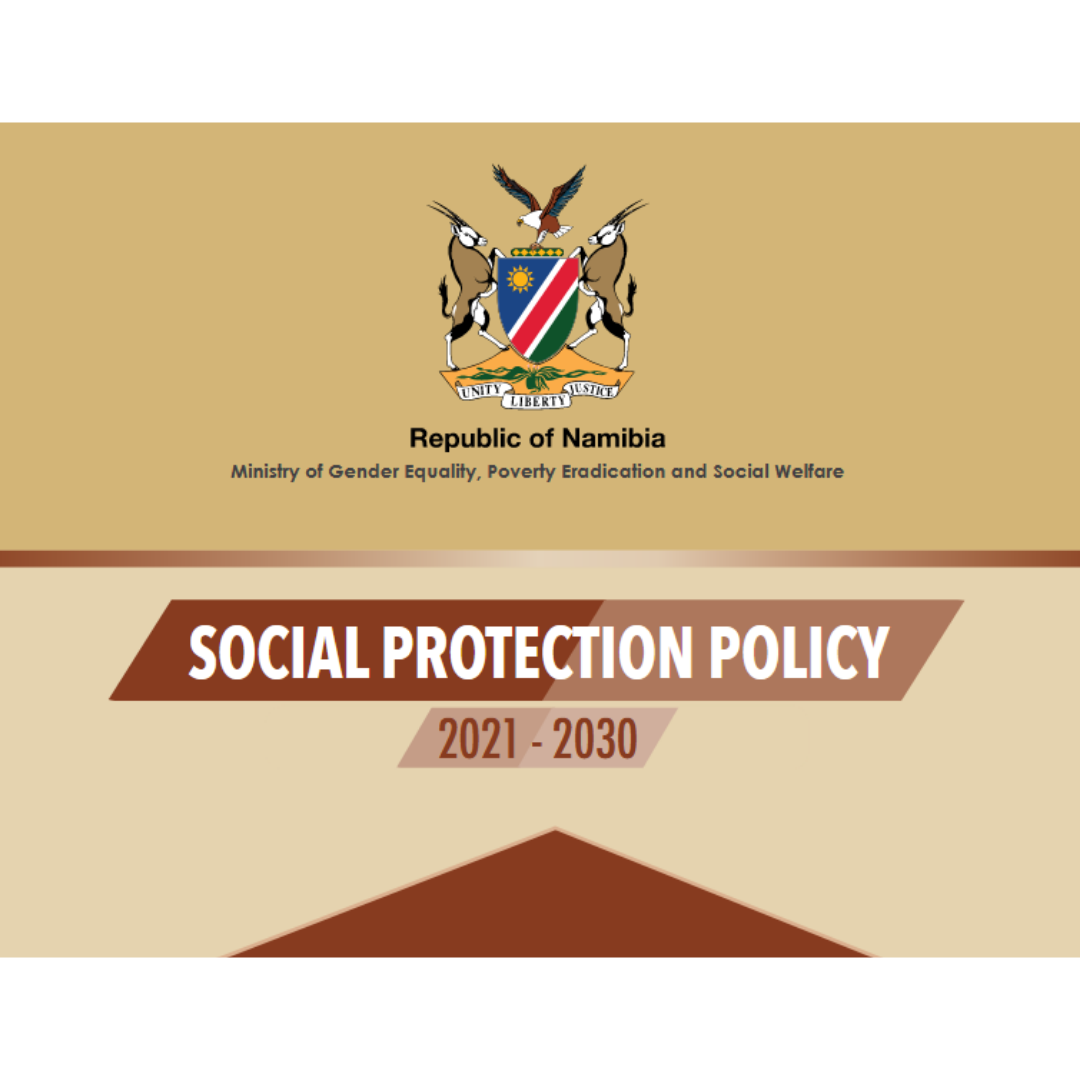Ministry of Gender Equality, Poverty Eradication & Social Welfare (MGEPESW) launches Social Protection Policy 2021-2030
On 31 March 2022, the Ministry of Gender Equality, Poverty Eradication and Social Welfare (MGEPESW) officially launched the Social Protection Policy 2021-2030. The Social Protection Policy is anchored on Article 95 of Namibia’s Constitution, which compels the Government to actively promote equal opportunity and the well-being of all citizens.
Namibia’s long-term policy framework, Vision 2030, aims to create a high-income, industrialised, politically stable, harmonious and successful society with income equity and equitable opportunity.
It specifies that individuals who are disadvantaged should be provided with social security that ensures a decent quality of life. Furthermore, the Policy is compliant with international, regional and national legal and regulatory frameworks – all of which emphasise the need to strengthen social protection systems to better respond to the risks and vulnerabilities that all people face throughout their life cycle, thereby
increasing their contribution to societal and national development.
The Social Protection Policy was developed based on consultations with Offices, Ministries and Agencies (OMAs) responsible for social protection at national and regional level. It establishes a comprehensive framework for the provision of efficient, effective and equitable social protection in Namibia, thereby contributing to poverty and inequality reduction.
Beyond addressing the longer-term poverty and social vulnerability, the Policy seeks to ensure that the social protection system is shock-responsive and better prepared to respond to sudden/severe shocks that frequently affect several households at the same time.
The specific objectives of the Policy are increase coverage and access to social protection services for all Namibians; improve coordination and integration mechanisms to strengthen and enhance the efficiency and effectiveness of social protection interventions; enhance the institutional framework for the delivery of social protection; improve government’s ability to respond to sudden/severe shocks that may affect many households simultaneously and food security, and improve monitoring and evaluation of social protection.
To achieve its objectives, the Policy aims to address current challenges in providing social protection, such as fragmentation, poor coordination, limited coverage and inadequacy of benefits as well as the lack of integrated management information systems for social protection – all of which influence the overall impacts of the current social protection programmes.
The Policy puts emphasis on the life cycle approach, ensuring the various vulnerabilities faced by people from childhood to old–age are addressed through the following measures: strengthen, sustain and increase existing grants; improve the inclusion of marginalised communities and people with disabilities; create employment and empower women and youth; improve TVET and tertiary education financial assistance; increase poor and vulnerable people’s access to affordable housing; establish the Integrated Management Information System; improve coordination; strengthen shock responsiveness, and improve monitoring and evaluation for social protection.
The activities, outputs and associated performance indicators as well costs of strategies are outlined in the Implementation Plan of this Social Protection Policy.
Click here to read/download the Social Protection Policy 2021-2030: https://www.civic264.org.na/images/pdf/2022/4/Social_Protection_Policy_2022_Final.pdf
When you subscribe to the blog, we will send you an e-mail when there are new updates on the site so you wouldn't miss them.
